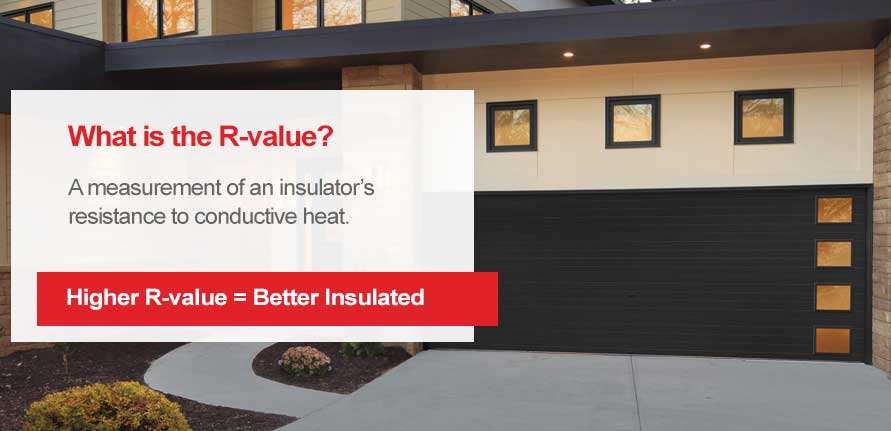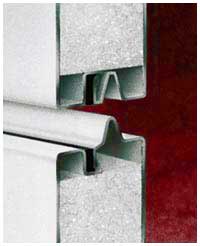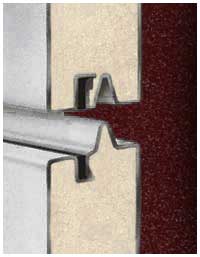
Why You Should Consider Insulated Garage Doors for Your Home
Insulated garage doors are beneficial for many reasons, and one of their biggest benefits is that they allow homeowners to regulate temperatures. Not only does an insulated door prevent heat from entering or escaping, but it also prevents heat transfer due to insulation. This can help with safety issues as well as energy bills and make your garage much more comfortable during various seasons.
Insulated garage doors are the best way to keep your garage temperature regulated during hot summers and cold winter months. Not only do they help you regulate your interior garage temperature, they also help keep out the outside noise, ensuring that you can hear yourself think while you’re in there working on your car or doing other things around the house that require your full attention.
The following information will provide you with all of the facts about insulated garage doors so that you can make an informed decision about whether or not this is the type of garage door you want installed on your property.

Types of Garage Door Insulators
Some people mistakenly believe that an insulated garage door is made of wood, but if you have wood panels on a door, then it’s most likely just for show. If you don’t have a foam-based insulated door and it’s difficult to heat or cool your house, then a garage door with insulation could be a useful addition. There are multiple insulation options available on modern garage doors, including polystyrene and polyurethane. Each material has advantages and disadvantages.
With that said, there is no best option — only a best option for each individual situation. Generally speaking, if you’re planning on having an insulated door installed on a residence (as opposed to a commercial application), you’ll want to choose from either a polystyrene or urethane product. Continue reading to learn more about these two common types of garage door insulation.
Polystyrene Insulation

Polystyrene insulation, also known as EPS, is a great option for garages. It does an excellent job of keeping heat in and cold out and keeps its insulating properties even at low temperatures. This kind of insulation is made from Styrofoam, which is resistant to extreme temperatures. It also acts as an insulator for hot and cold air, so it doesn’t let either in or out of your home.
Polyurethane Insulation

Polyurethane is one of the best insulators on the market and you can save money on heating and cooling costs by opting for a polyurethane insulated garage door. Polyurethane insulation makes it easier for heat transfer away from heated air entering into the building which means that warm air stays where it should be: inside. This prevents cold drafts and allows homeowners to save energy costs throughout their home.

General Maintenance Information
If you do not properly maintain your insulated garage door, then not only will it stop working properly (if at all), but there is also a chance of water damage – which can lead to mold and mildew. One of the best ways to protect an insulated garage door is making sure that it doesn’t get damaged. Foam sheets and gaskets should also be replaced every three years on average, but if there are any signs of damage or wear, they should be swapped out sooner.
To reduce any risk of injury from low-hanging or loose insulation, inspect it regularly for tears and bulges that could make walking underneath dangerous. Sticking with regular maintenance will ensure you don’t have any issues with energy loss either; keeping foam elements clean is vital for maintaining a strong air seal between your garage door and insulation.
Frequently Asked Questions
What is R-value?
Why is an insulated garage door so important?
How much does an insulated garage door cost?
Do insulated garage doors really make a difference?
Is an insulated garage worth it?
Summary
Insulated garage doors are beneficial in many ways, with savings on energy bills being just one of them. Most new insulated garage door models also offer features such as low maintenance, quiet operation, and stability over time. The insulation can also help protect against fire and other hazards you might face if you have valuable items stored in your garage regularly. Insulated garage doors are a great investment for any homeowner looking for practical comfort that provides multiple benefits.
Top Notch Garage Door is North Georgia’s trusted garage door company. We are licensed, insured and bonded. Our company has been serving Atlanta and the surrounding areas for over 13 years. We are Better Business Bureau Accredited with an A+ Rating. Want to learn more about how we can serve you? Give us a call today (770) 235-8189


I’d like to add a point. An insulated garage door will be of most benefit to the homeowner with living space above the garage. Not only will it help reduce noise, but also helps with controlling temperature above the garage.